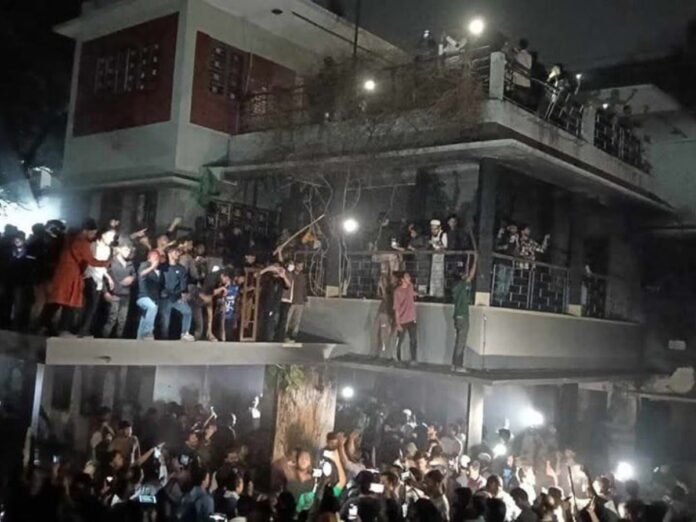Dhaka [Bangladesh]: A violent mob in Bangladesh has demolished the Dhaka family home of ousted Prime Minister Sheikh Hasina, along with properties owned by her relatives. Leaders of Hasina’s Awami League party were also targeted in the attack.
The destruction, described as a “bulldozer procession,” was publicly announced and shared on social media beforehand. Despite this, authorities failed to prevent the incident.
Sheikh Hasina stepped down in August 2024 after ruling for 15 years, during which her administration was accused of repression, torture, extrajudicial killings, and enforced disappearances. A wave of student-led protests, widely referred to as the Monsoon Revolution, ultimately forced her into exile in India. Hasina’s Awami League government had maintained power through consecutive disputed elections and responded to demonstrations with excessive force, resulting in over 800 deaths.
The vandalism took place as Hasina was preparing to address her supporters online. Meanwhile, calls for her repatriation are growing in India. However, under international legal standards, the Indian government must first assess potential risks before considering any extradition.
Bangladesh’s interim government, led by Nobel Peace Prize laureate Muhammad Yunus, has initiated reforms to restore key institutions, including the judicial system. It is also taking steps to ensure accountability for past human rights violations and corruption while pledging to hold credible elections.
Despite these efforts, the Yunus administration faces mounting pressure from various groups, including political organizations, students, and families of those affected during the Monsoon Revolution. Additionally, concerns persist among religious and ethnic minorities, particularly Hindus, who fear potential attacks. Meanwhile, the military has been obstructing access to former detention sites and allegedly destroying evidence to protect its reputation.
The Yunus government is expected to present a resolution at the upcoming United Nations Human Rights Council session in March. This resolution would seek technical assistance, further investigations, and monitoring by UN-backed human rights experts. It is also anticipated to acknowledge past human rights violations under the previous administration while recognizing the interim government’s efforts toward justice and democracy.
As Bangladesh moves forward, many citizens are calling for a UN-backed mechanism to ensure justice and democratic stability, rather than succumbing to further cycles of violence and revenge.


